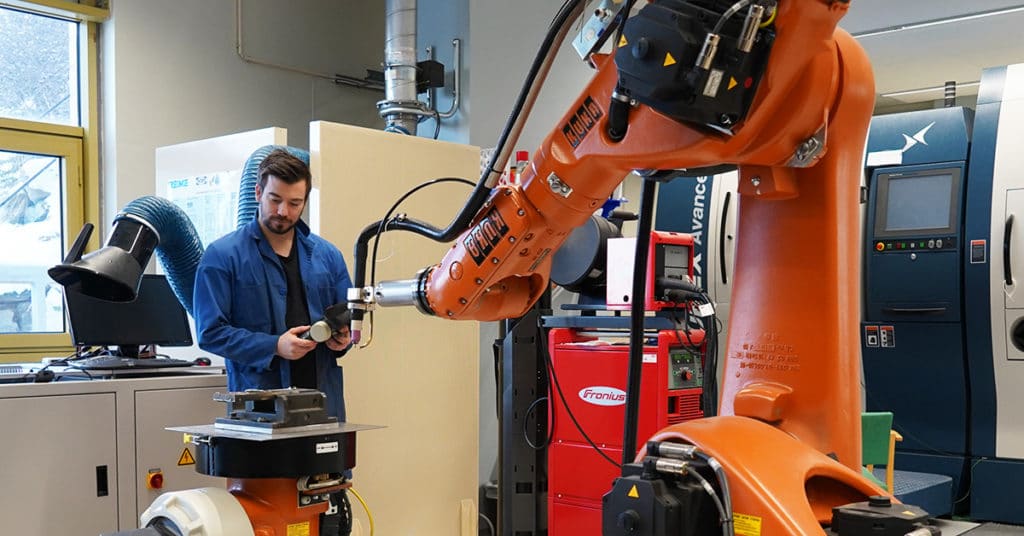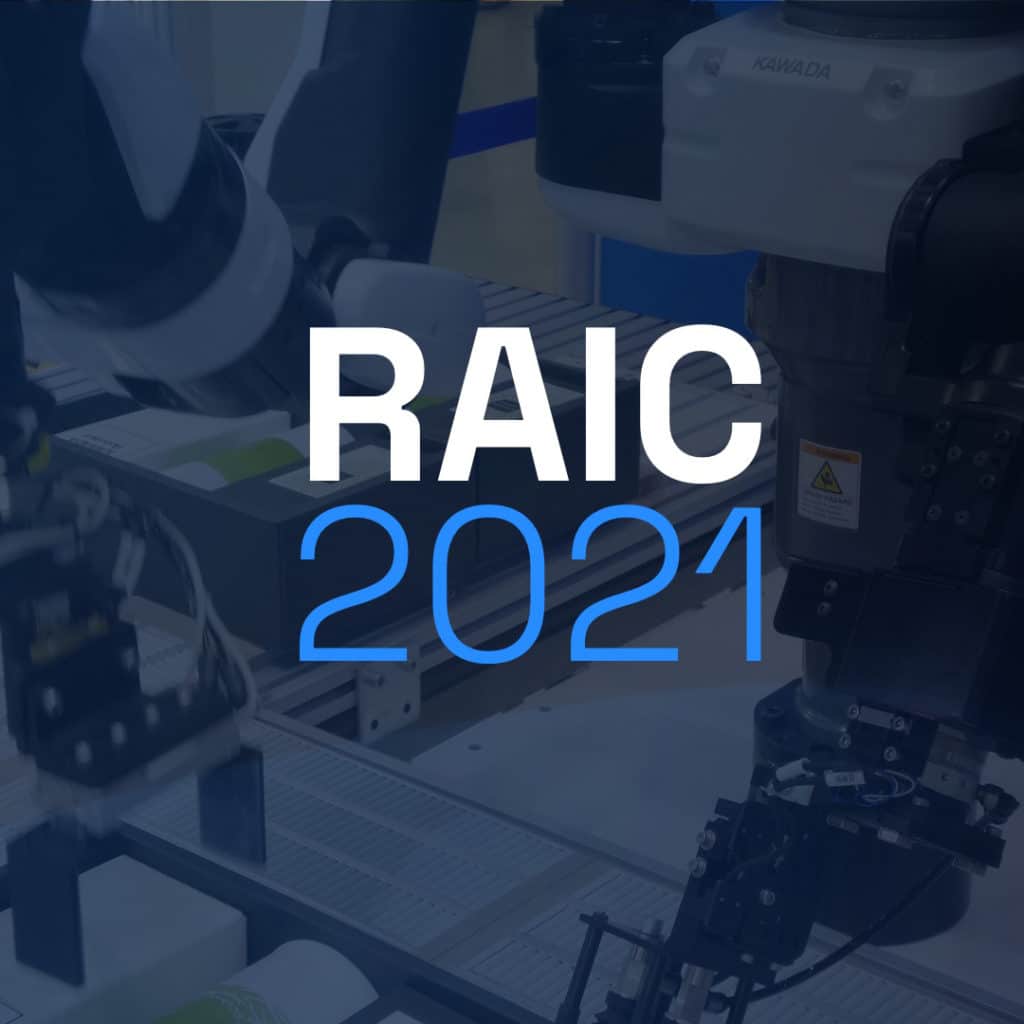Kick-starting cross-sector robotic innovation and application

Robotics technology is developing rapidly, but robotic uptake is hampered by a lack of collaboration between sectors. The upcoming Robotics and Artificial Intelligence (AI) conference will be the first European event tailored specifically to foster cross-sector applications in robotics.
The Robotics and Artificial Intelligence Cross-Sectoral Innovation Conference (RAIC 2021) will convene Nordic key industry players, public sector stakeholders and research and development organizations in a first-of-its-kind digital conference dedicated to cross-sectoral learning and innovation in robotics and AI.
The goal is to help companies boost their business by laying the groundwork for new collaborations on robotics and AI projects.
RAIC 2021 will focus on robot application in four areas:
- healthcare
- production
- agro-food (including aquaculture
- inspection and maintenance
– There is a significant, untapped potential in technology and knowledge transfers between different sectors in robotics, explains Pavan Sriram, head of international projects at DigitalNorway.
– We have seen a few examples of technology transfers, but I believe that is just the tip of the iceberg of what we can achieve.
– Tendency to work in silos
As an example, he mentions how robotics technology developed for the oil and gas industries has been found to be applicable in sectors such as health and aquaculture.

– When it comes to robotics, there is a tendency to work within silos. We have found that when we run innovation workshops, companies and stakeholders are often not aware of cross-sector commonalities. Through this conference, we will help companies make the most of advances in robotics technologies, regardless of which sector they work in.
RAIC 2021 is a collaborative effort between DigitalNorway, SINTEF, Innovation Norway, Norway Health Tech and the Norwegian Research Council. The programme will consist of innovation workshops, where trainers and experts will help participants lay the groundwork for fruitful collaboration opportunities.
The programme also includes matchmaking sessions between businesses, funding programmes and research institutions, as well as a series of keynote speakers sharing their experiences of robotics innovation and cross-sector applications.
Good mix of suppliers and end users
– Although robotics technology is developing rapidly, there is still a long way to go in terms of application. The idea of this conference is to gather the right stakeholders both on the robotics and the end-user side under the same roof, to speed up this application process, says Aksel A. Transeth, senior researcher at SINTEF.

The event is particularly relevant to small and medium enterprises who are in need of expanding their network and to find partners to collaborate with, and who are either a technology supplier or in need of technological solutions within these sectors.
– The conference will bring together a good mix of both end users and suppliers. It is a great opportunity for suppliers to see how their technology and services can be of use in other sectors, and for customers to get a sense of how robotic developments in other fields may be of use to them. We have tailored the programme to help foster cooperation and new partnerships, says Transeth.
Focus on funding and support opportunities
RAIC 2021 also aims to give companies an introduction to the various funding opportunities and support structures that exist to help businesses apply robotics technology.
– The EU has put in place comprehensive support structures to promote robotics application and innovation. These include not only funding, but also various kinds of technical and business support programmes, Sriram of DigitalNorway explains.
– Representatives from the major European funding and support programmes will be present during matchmaking events. There will also be sessions focusing specifically on funding opportunities for Norwegian businesses.
Funding and support programmes presenting at RAIC
- EU-wide programmes: TRINITY, RIMANetwork, DIH², AgROBOfood, DIH HERO, PULSATE, CHANGE2TWIN, KYKLOS 4.0
- Funding opportunities for Norwegian companies: Innovation Norway, Norway Health Tech, The Research Council of Norway, Rinve(SINTEF)
Collaboration key to staying competitive
In one of the keynote sessions, Bernt Schjetne, CEO of OceanTech Innovation, will address the challenges and opportunities of transferring robotics technology from oil and gas rig maintenance to aquaculture and offshore wind facilities.
– I believe the RAIC conference will be a very useful event. We have experienced first-hand the need to cooperate and exchange knowledge across sectors in robotics technology. For our own part, we will actively take this opportunity to explore new avenues for collaboration and partnerships, says Schjetne.

OceanTech Innovation specialises in robotic equipment for inspections and manual work in the splash-zone of maritime installations, the part of the structure immediately above and below the surface area, where waves and heavy currents make maintenance and inspection difficult. The company’s solutions are now making headway into the aquaculture and offshore wind sectors.
– We have spent over a decade developing this technology. Naturally we want to put it to good use in other sectors as well, Schjetne explains.
He further believes that the RAIC conference will help Norway remain at the top of the global robotic innovation league.
– Speaking from the supplier side of things, you need to stay at the very forefront of technological development to stay competitive. And the technology is developing fast. Norway is home to world-leading ecosystems in robotics and autonomy, but to retain this position it is vital that we bring leading players together to share experiences and knowledge, he concludes.
Confirmed keynote speakers
- Bernt Schjetne, CEO of Ocean Technologies, on adapting robotics designed for oil and gas platforms to aquaculture and offshore wind facilities.
- Tore Magnus Follinglo, CEO of Drone Operations at Statens Vegvesen, on operationalizing the use of UAVs in a large and geographically distributed organization
- Konrad Fagertun, co-Founder of nLink AS and Rocketfarm on disruptive robotics: how to go from an idea to applying robotics in new areas.
- Professor Artur Serrano, professor in care technology and well-being at NTNU and leader of the Immersive Technology and Robotics Lab (IMRO), on the development and status of robots in social care.
- More speakers will be announced leading up to the conference.

About Trinity: The TRINITY project has received funding from the European Union’s Horizon 2020 research and innovation programme under grant agreement nº 825196.
